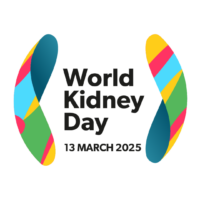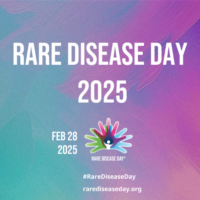
The Movember Institute of Men’s Health has just released a new report, “The Real Face of Men’s Health”, examining the state of men’s health in Canada,
In 2023, five conditions – coronary heart disease (CHD), colorectal cancer, lung cancer, chronic obstructive pulmonary disease (COPD), and suicide – were responsible for the greatest number of years of life lost to ill health among Canadian men.
HealthLumen was commissioned to carry out the health economic modelling for this report. Our modelling showed that if all preventable cases of these five conditions had been avoided in men in 2023, Canada could have saved $12.4 billion CAD.

In 2024, the World Health Organization (WHO) reported that noncommunicable diseases (NCDs) account for approximately 75% of all deaths worldwide.
For pharmaceutical and biotech companies working in CVRMs, understanding future disease burden is essential to long-term strategy in order to inform decisions regarding where, when and how to invest resources for maximum impact of return. This is important when developing therapeutic interventions, but also for identifying where those interventions can have the greatest impact, and for making the case to act sooner.
In this context, epidemiological modelling is playing a growing role in evidence generation.

Chronic Kidney Disease (CKD) affects more than 10% of the population worldwide and is often associated with other conditions such as diabetes and hypertension. However, rare kidney diseases, although individually rare, collectively exert a notable impact on kidney health – accounting for an estimated 5–10% of CKD cases.
Despite their impact, rare kidney diseases often remain underdiagnosed and under-recognised within CKD care and policy frameworks. This raises critical questions: Why do so many rare kidney conditions go undiagnosed? Could rare kidney diseases account for more CKD cases than previously thought? And what would earlier diagnosis and targeted intervention mean for patients, health systems, and payers? This article aims to address these questions.

Chronic kidney disease (CKD) is a major global health issue – affecting an estimated 1 in 10 people – yet it is frequently overlooked on health agendas worldwide. In its early stages, CKD is often asymptomatic, and many individuals are unaware that they have CKD until the disease has progressed to later stages, where it becomes harder and more costly to treat – with patients facing the prospect of dialysis or kidney transplant. This makes early CKD detection critical to improving patient outcomes and reducing the growing health and economic burden of CKD worldwide. Recognising this, the World Kidney Day campaign this year is centred around the theme: “Detect early, protect kidney health.”

Rare Disease Day presents a time to reflect on the progress made in understanding and addressing the unique challenges that rare diseases bring – and the hurdles that remain. Over the past year, several significant developments have shaped the rare disease landscape, from new regulatory policies and technological advancements to major advocacy efforts.

Awareness of the vast impact of rare diseases, which affect approximately 300 million people globally (1), has significantly increased over the years, leading to increased funding and investment in rare disease research and therapy development. Although more than half of the novel drug approvals by the FDA’s Center for Drug Evaluation and Research last […]

New blog published this week by Evidence & Policy co-authored by our COO and Co-Founder Laura Webber. The blog builds off research by Laura and collaborators at Lancaster University and the University of York on the health impacts universal basic income (UBI) could have. The role of UBI has come to the fore during the […]

Yesterday saw the launch of the National Strategy to meet the government’s stated mission of “five extra healthy years by 2035”. The key challenge this initiative aims to address is that, whilst we are all living longer, too many of these years are just extra years of bad health. There are also continued, significant health […]

The term “20/20 vision” informally denotes perfect eyesight. So, moving into the year 2020 it is an apt metaphor for our goal, which is to help improve global population health through better decision-making. Our forecasting methodology – based on a microsimulation model – integrates health, economic and population data from multiple sources as a baseline […]

In the weeks before his election Boris Johnson called for a review and potential roll back of ‘sin taxes’ which bemused experts, including the public health community. He stated that “once we leave the EU on 31 October, we will have a historic opportunity to change the way politics is done in this country. A […]
When you need a future-facing decision engine for big, real world population health questions, we are the people to turn to.
Solutions